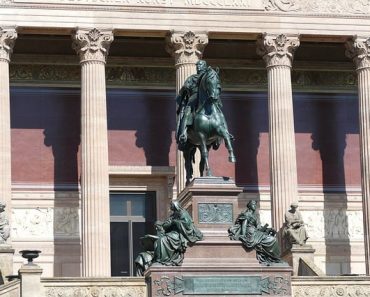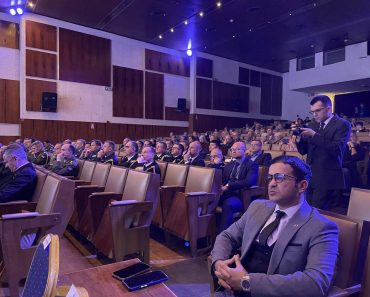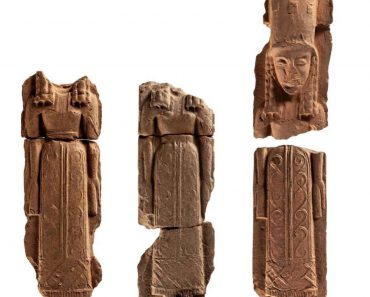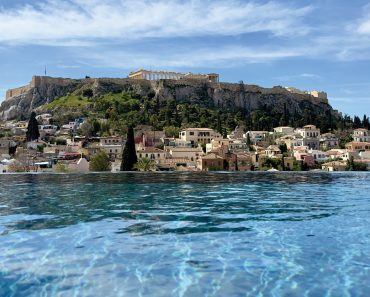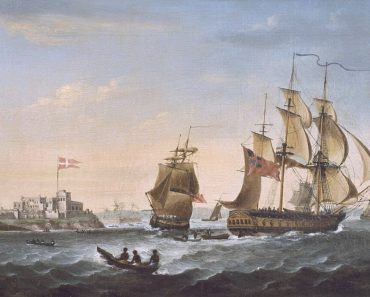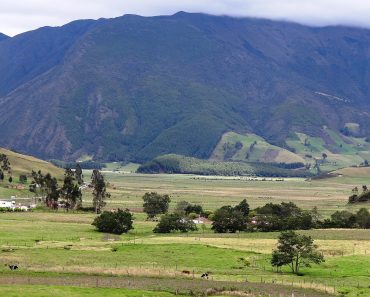Less than two months after an informal meeting in Geneva, Turkish Republic of Northern Cyprus (TRNC) President Ersin Tatar met the head of the Greek Cypriot administration, Nikos Christoulides, in a buffer zone on the divided island. Colin Stewart, special representative of the U.N. Secretary-General on the island and head of the U.N. Peacekeeping Force, hosted the two men with vastly different views on the island’s status.
Before a head-to-head meeting, Tatar and Christoulides joined Greek and Turkish Cypriot youth who formed the Youth Technical Committee for cooperation on the island, where the sides do not recognize each other. The committee’s inaugural meeting points to momentum in talks between the two sides, whose discussion to find a lasting solution to the decadeslong Cyprus issue ended up in a deadlock before.
The Geneva talks in March that brought together Tatar and Christoulides in the presence of U.N. representatives as well as representatives of guarantor states Greece, Türkiye and the United Kingdom were the first step toward Monday’s meeting. The talks did not yield any concrete results regarding the status of the Turkish Cypriots on the island, but the sides agreed to open up new venues of cooperation, according to the media reports.
The youth committee is the 13th “technical committee” jointly formed by Greek and Turkish Cypriots to facilitate daily life in the divided island, but it is the first to be formed in a decade, highlighting the slow process.
Speaking at the meeting of the youth committee, Tatar said it was “history in the making” and thanked Stewart for leadership in the committee’s formation.
Tatar said the fact of the “Cyprus question” cannot be ignored and the sides should be realistic and honest. He said the solution to the question would be shaped based on circumstances. “We trust our youth. Every member has capacity. Getting to know each other, they may make progress,” he said. Tatar also thanked Christoulides and underlined that building mutual trust was crucial for the progress of the two peoples on the island. “We must learn to live together in this beautiful island in the Eastern Mediterranean. Through sharing of resources and resolving issues, both sides can work for prosperity,” he was quoted by the Turkish Cypriot media. For his part, Christoulides thanked Tatar and said the youth committee was “the most important” among 13 committees formed so far. He expressed confidence that the committee’s efforts would contribute to solving the Cyprus question and peace. “You are the future of Cyprus,” he said. “Lead the way,” he added.
Talks between the sides come after a weekend of demonstration of solidarity between the TRNC and Türkiye. President Recep Tayyip Erdoğan was on the island for a technology event organized by a foundation co-founded by owners of top drone maker Baykar and for the inauguration of a new presidential complex for the TRNC built by Türkiye.
Erdoğan reiterated solidarity with the TRNC in its righteous cause for achieving sovereign equality in the divided island. Speaking to reporters during his return to Türkiye from the TRNC, Erdoğan reiterated Türkiye’s support for the TRNC and said the country would “sooner or later gain sovereign equality and equal international status.”
Türkiye backs the TRNC’s opposition to a federation in the island, an idea proposed in the past for the two communities to have an equal say in the island’s affairs. Greece and Greek Cypriots advocate for one sovereign state on the island.
The conflict has long been on the agenda of the U.N., which has kept a peacekeeping force on the island since 1964.
In the early 1960s, ethnic attacks forced Turkish Cypriots to withdraw into enclaves for their safety. In 1974, a Greek Cypriot coup aiming at Greece’s annexation of the island led to Türkiye’s military intervention as a guarantor power to protect Turkish Cypriots from persecution and violence. The TRNC was founded in 1983. The island has seen an on-and-off peace process in recent years.
The Greek Cypriot administration entered the EU in 2004, the same year that Greek Cypriots thwarted the U.N.’s “Annan Plan” to end the dispute, which had envisaged a reunited Cyprus joining the EU. Erdoğan noted that the Geneva meeting paved the way for cooperation in several fields between the TRNC and the Greek Cypriot administration and Ankara would play a constructive role in the matter.
“The motherland Türkiye will always stand with the TRNC and our solidarity will last forever. We sincerely desire a fair, lasting, sustainable and realistic solution,” he said. “Developments in our region show that this reality should be accepted now. It is time for everybody to accept that the island hosts two peoples and two states. As the motherland and guarantor state, our support to Turkish Cypriots, to their independent state, will prevail. Turkish Cypriot people, an inseparable part of the Turkic world, by God’s will, will reach the point they desired, with the support of our country,” Erdoğan said.
On Saturday, TRNC President Ersin Tatar reaffirmed bonds with Türkiye, “with whom we wrote history,” referring to staving off Greek Cypriot plots in the 1970s. “We owe our living in peace here to the efforts of Türkiye and the Turkish Armed Forces (TSK). Southern Cyprus (of the Greek Cypriots) and others may have other designs on the island, but we will carry TRNC to the future with our motherland,” he said on the sidelines of the Teknofest event.
Turkish Cypriots often pursued an approach that safeguarded the rights of the community, though it was open to concessions in the past, including a bicommunal federation. Under Tatar, who was elected in 2020, the state adopted a more hawkish tone and persisted in sovereign equality and the two-state solution on the island. The TRNC sees recognition of sovereign equality and equal international status by the international community as a priority to resume talks with the Greek Cypriot community for a fair, permanent and lasting solution to the question. Tatar and Erdoğan reiterated this view on international platforms, particularly at the U.N.
Answering a question on developments in southern Cyprus, where the Greek Orthodox archbishop recently made provocative remarks targeting Turkish Cypriots and the establishment of an anti-Turkish terrorist group, Erdoğan said history would repeat itself for “those who did not learn their lessons.” “I strongly condemn any remarks harming the language of peace in Cyprus,” Erdoğan said. The president said they did all they could for peace and security in the island of Cyprus and would continue doing so.
“The fact that the TRNC’s rights and interests are the same as ours will not change. We won’t allow any approach to disrupt peace in the island, any approach that hurts the sensitivities here, or that aims to incite strife. Those resorting to terrorism, those ignoring the existence of Turkish Cypriots, should know that Türkiye is stronger now. It will be better to adopt a constructive, unifying discourse rather than a discourse inciting tensions, for the future of the island. They should be careful. We will never allow the suffering to repeat. We will remain the biggest supporter of the righteous cause of Turkish Cypriots. Türkiye is not old Türkiye, neither the TRNC is the old TRNC. The world has changed as well. Bear these in mind,” Erdoğan warned.
Erdoğan’s remarks angered Athens, which quoted a Greek diplomatic source saying they were concerned about Erdoğan’s envisioned future for the island. Sources said it was an attempt to create a “fait accompli” on the island. The island of Cyprus is among the thorny issues that are challenging the improvement of relations between Türkiye and Greece. Although Ankara and Athens often exchange pleasantries about the improved ties in many fields, both occasionally trade barbs either on the Cyprus issue or maritime borders in the Aegean Sea, dividing the two countries.



